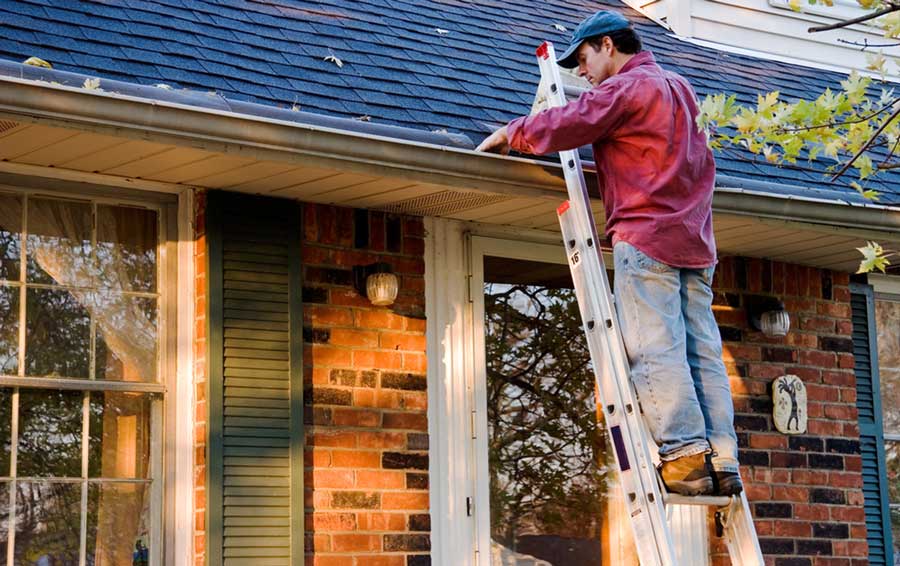
Have you ever hesitated to walk under a ladder, fearing bad luck or even injury? You're not alone! The superstition surrounding walking under a ladder is surprisingly widespread, sparking curiosity and amusement in equal measure. But where does this belief come from, and is there any truth to it? Let's look into the history and psychology behind this fascinating superstition.
Several explanations trace the origins of the ladder superstition back to ancient times and various cultures. Some believe it stems from the Egyptians, who revered ladders as gateways to the heavens. Disturbing this sacred path by walking under it could anger the gods and bring misfortune.
Another theory connects the superstition to the mediaeval use of ladders during executions. Prisoners on their way to the gallows often walked under ladders, creating an association between ladders and impending doom.
Furthermore, the triangular shape formed by a ladder leaning against a wall holds significance in different cultures. In Christianity, the triangle represents the Holy Trinity, and passing through it might be seen as disrespectful. Others associate triangles with magic and the supernatural, intensifying the fear of bad luck.
Beyond history, psychological factors contribute to the persistence of superstition. Humans essentially seek patterns and explanations for events, even random ones. Coincidences like tripping after walking under a ladder can strengthen the belief, creating a self-fulfilling forecast of fear and negativity.
Additionally, superstition taps into our primal fear of the unknown and unseen. Ladders provide access to elevated spaces, which can feel at risk and unpredictable. Walking under one may trigger unconscious anxieties about potential falling objects or unseen dangers.
It's important to separate superstition from reality. While accidents related to falling objects from ladders occur, there's no scientific evidence to suggest walking under a ladder increases your risk of bad luck or injury.
However, common sense dictates caution around ladders. Respecting them as tools and avoiding unnecessary proximity remains important, regardless of superstition.

Whether you choose to embrace or dismiss the ladder superstition is entirely personal. Some find comfort in upholding traditions and rituals, while others prefer a more evidence-based approach.
Read About: Eye Twitching Superstition - Myth Or Fact
If superstition causes undue anxiety, it's helpful to acknowledge its irrationality and focus on rational explanations for events. Remember, coincidences happen, and bad luck doesn't have to be linked to seemingly innocuous acts like walking under a ladder.
The superstition surrounding ladders continues to fascinate and inspire. Here are some fun facts and frequently asked questions:
Ladders are often featured in horror movies, playing on the fear of the unknown and potential danger.
In some cultures, carrying a four-leaf clover while walking under a ladder is believed to cancel out bad luck.
Did you know there's an International Ladder Safety Day (March 17th) to promote safe ladder use?
While the superstition of walking under a ladder has ancient origins and psychological factors behind it, there's little scientific evidence to support its validity. Safety around ladders is crucial, but attributing bad luck to this act is more about belief than reality. Understanding its roots and psychological aspects can help alleviate anxiety and encourage a rational perspective on chance. So, next time you encounter a ladder, walk by confidently, knowing that superstitions don't determine your fate.
There's no scientific evidence to support this claim. However, accidents can happen around ladders, so exercising caution is always wise.
Many cultures have superstitions, from breaking mirrors to spilling salt. The specifics vary widely, reflecting unique cultural beliefs and traditions.
Ultimately, the choice is yours. If superstition doesn't bother you, there's no need to change your behaviour. However, if it causes anxiety, focusing on logical explanations and practising mindfulness can help.
Ladders have a long and fascinating history, used in construction, exploration, and even religious ceremonies. Some cultures even revered ladders as symbols of reaching higher planes of existence.
While not based on reality, superstitions can provide comfort and a sense of control in uncertain situations. They can also serve as cultural touchstones, connecting us to our heritage and shared beliefs.
For more Interesting topics follow us on Instagram
Author :